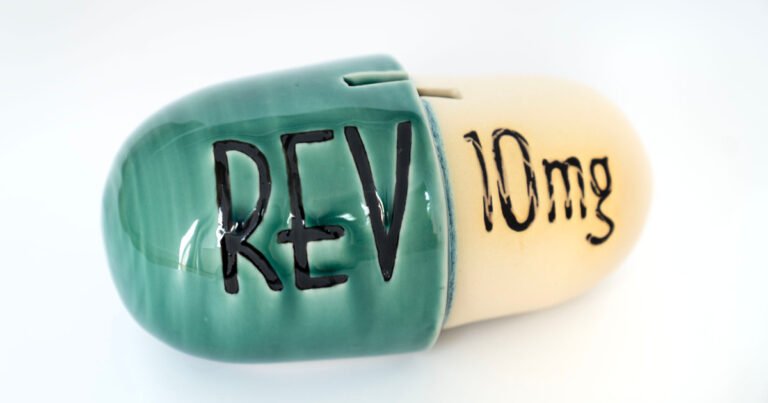In the U.S., the price of Revlimid, a brand-name cancer drug, has been increasing for two decades. It now sells for nearly $1,000 a pill. In Europe, the price has been consistently lower — in some countries by two-thirds.
I started reporting on Revlimid after I was prescribed the drug following a diagnosis of multiple myeloma, an incurable blood cancer. Stunned by the high price, I found that the drugmaker, Celgene, had used Revlimid as its own personal piggy bank for more than a decade, raising the price in the U.S. whenever it saw fit.
Even with lower prices in Europe, Celgene still made a profit there, a former executive told Congress. That added to the more than $21 billion in net earnings the company made after Revlimid was introduced in 2005.
Of course, Revlimid isn’t the only drug with a price disparity. Americans pay more in general for prescription drugs than people in other wealthy countries. And costs keep going up, saddling patients with crippling debt or forcing them to choose between filling prescriptions or buying groceries. So why do we pay so much more? And is anything being done about it?
In most other wealthy countries, governments set a single price for a drug that is usually based on analysis of the therapeutic benefit of the medicine and what other countries pay. In the U.S., drug companies determine what to charge for their products with few restraints. Insurance companies can refuse to cover a drug to try to negotiate a lower price, but for some diseases like cancer, that poses a risk of public backlash. Cancer is a “very politically charged disease,” said Dr. Aaron Kesselheim, a Harvard Medical School professor who studies drug pricing and regulation. Some states also mandate that insurers cover certain cancer drugs.
Pharmaceutical companies have consistently argued that American drug prices reflect the cost of research and development. Americans may pay more, but they also benefit from having first-line access to cutting-edge treatments. (Celgene has since been acquired by Bristol Myers Squibb, which says its price for Revlimid, which it increased in the U.S. last year by 7%, “reflects the continued clinical benefit Revlimid brings to patients, along with other economic factors.”)
Dr. Hagop Kantarjian, a leukemia specialist at MD Anderson Cancer Center who studies drug pricing, said that pharmaceutical companies often overstate the cost of developing drugs and that many drug discoveries originate in hospital and academic labs funded through government grants. Funding from the U.S. National Institutes of Health contributed to all but two of the 356 drugs approved by the Food and Drug Administration from 2010 to 2019, according to a Bentley University study. Companies also don’t spend all their profits on innovation: The 14 largest drug companies in the world spent more on stock buybacks and dividend payments to investors than on research and development, according to a 2021 analysis by the U.S. House Oversight Committee.
One possible solution to bring down costs: tie American prices to what drugmakers charge in other wealthy countries. The Congressional Budget Office found last year that this would have the biggest impact on reducing costs of seven proposals it studied. It’s an idea with bipartisan support.
Sens. Josh Hawley, R-Mo., and Peter Welch, D-Vt., introduced a bill this week that would penalize pharmaceutical companies that sell their drugs at higher prices than the average of the prices in Canada, France, Germany, Japan, Italy and the United Kingdom. Companies that sell above the average would face civil penalties equal to 10 times the difference between the U.S. list price and the average price in those other countries.
President Donald Trump has advocated for similar actions. During his first term, he issued an executive order directing the Medicare program to employ a “most favored nation” approach in paying for drugs. The administration later developed a rule directing Medicare to select the lowest price from a basket of similar countries and make that the maximum amount the agency would pay for 50 drugs administered by doctors. A court blocked the rule from being implemented in the last days of the first administration.
Now, according to reports this week, the administration is pushing plans to tie Medicaid and Medicare prices to lower prices charged in other countries.
Linking U.S. prices to those in other countries is opposed by industry groups who say it would leave decisions on medications to the government rather than doctors and patients.
“Government price setting in any form is bad for American patients,” said Alex Schriver, a spokesperson for the Pharmaceutical Research and Manufacturers of America, an industry group. He said efforts should be focused on fixing “the flaws in the U.S. system,” including money that flows to intermediaries such as pharmacy benefit managers.
Some critics also warn so-called international reference pricing can be gamed and allows foreign governments to essentially set the value of medicines sold in the U.S.
The Trump administration is expected to announce drug pricing plans as early as next week, according to a report. The White House did not respond to a request for comment.

